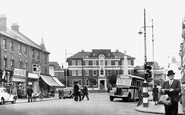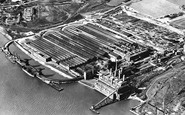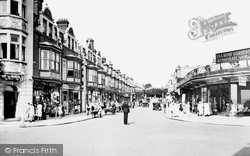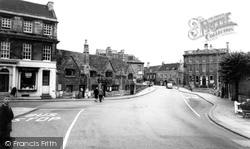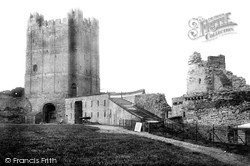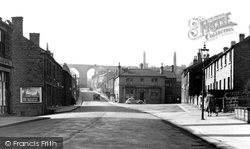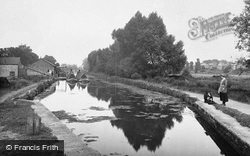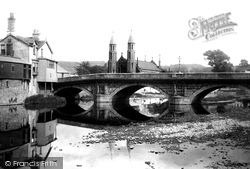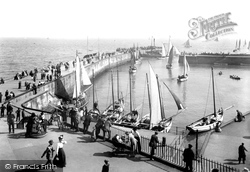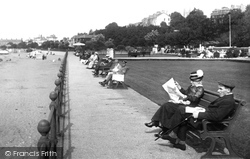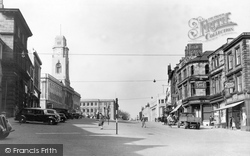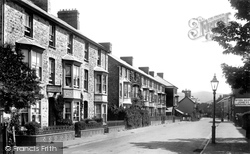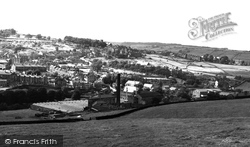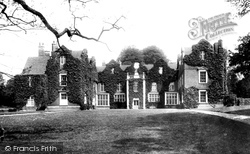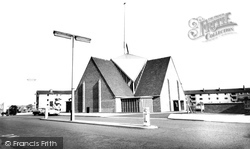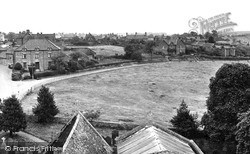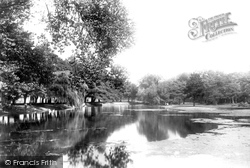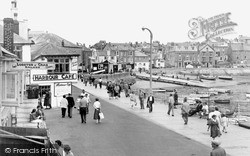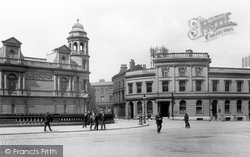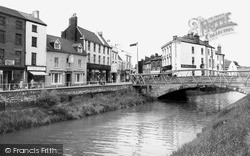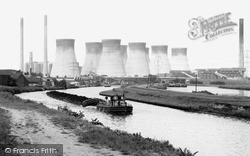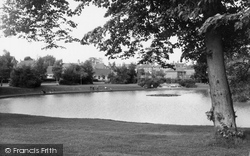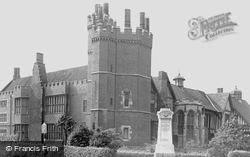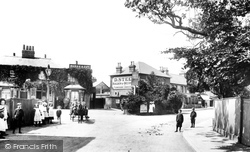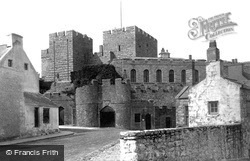Merry Christmas & Happy New Year!
Christmas Deliveries: If you placed an order on or before midday on Friday 19th December for Christmas delivery it was despatched before the Royal Mail or Parcel Force deadline and therefore should be received in time for Christmas. Orders placed after midday on Friday 19th December will be delivered in the New Year.
Please Note: Our offices and factory are now closed until Monday 5th January when we will be pleased to deal with any queries that have arisen during the holiday period.
During the holiday our Gift Cards may still be ordered for any last minute orders and will be sent automatically by email direct to your recipient - see here: Gift Cards
Places
26 places found.
Those places high-lighted have photos. All locations may have maps, books and memories.
- Town End, Derbyshire
- Town End, Buckinghamshire
- Town's End, Somerset
- Towns End, Dorset
- Town End, Merseyside
- Town End, Cambridgeshire
- Town's End, Buckinghamshire
- West End Town, Northumberland
- Bolton Town End, Lancashire
- Kearby Town End, Yorkshire
- Town End, Cumbria (near Grange-Over-Sands)
- Town End, Cumbria (near Bowness-On-Windermere)
- Town End, Yorkshire (near Huddersfield)
- Town End, Yorkshire (near Wilberfoss)
- Town End, Cumbria (near Appleby-in-Westmorland)
- Town's End, Dorset (near Melbury Osmond)
- Town's End, Dorset (near Swanage)
- Town End, Cumbria (near Ambleside)
- Town End, Cumbria (near Lakeside)
- Town End, Cumbria (near Kirkby Lonsdale)
- Town End, Cumbria (near Ambleside)
- Town's End, Dorset (near Bere Regis)
- West-end Town, South Glamorgan
- Townend, Derbyshire
- Townend, Strathclyde (near Dumbarton)
- Townend, Staffordshire (near Stone)
Photos
26 photos found. Showing results 2,581 to 26.
Maps
195 maps found.
Books
160 books found. Showing results 3,097 to 3,120.
Memories
3,720 memories found. Showing results 1,291 to 1,300.
Orsett Road .. Fire Station And Jack Going !
What a difficult thing it is to write down all you want to! So much in our memories ... I am the curator of the Essex Fire Museum which is based at Grays fire station in Hogg Lane. I was born in Grays in June ...Read more
A memory of Grays by
The Railway Children
During the war years in 1940, we moved from Doncaster to Rossington. My father worked on the railway and felt we would be safer in the country. We lived at 254 Gatehouse Crossing and later in 1948, at 383 Gatehouse, ...Read more
A memory of Finningley in 1940 by
Shoreham Road
I lived at 21 Shoreham Road, I remember playing in the woods before they started cutting them down. Hanging around the shops at night, going to Chislehurst caves to see the bands play and I remember what it was like before the ...Read more
A memory of St Paul's Cray in 1960 by
The Old Post Officeby Bont Tirlwm
My mother is Olwen Jones (nee Haigh) of the old post office in Bodorgan from 1937 to 1953 when she got married to Vivian Madoc Jones of Newborough. Her parents Randolph and Janet Haigh ran the post office from ...Read more
A memory of Bodorgan by
1955
I joined the Vindi late 55 and did my 6 weeks catering. I loved every minute of the regimented days and the food was great after being on rationing at home. I remember two of the lads in our hut going over the wall one night, must have ...Read more
A memory of Sharpness by
Brewers Arms Horndean.
Fred Farmer, my father, had the Brewers Arms at the top of the hill, just before going down hill into Horndean. Just opposite the pub was a small school and to the end of WW2 a German aircraft crashed into the roof. Would anyone know of this good old pub?
A memory of Horndean in 1952 by
Eastbrook School
This is an extract from a story I wrote after taking some Dutch students to France in 1992 it includes youthful memories especially of Eastbrook School and it's staff. July 1962 (or there about). Vaguely do I remember my ...Read more
A memory of Dagenham in 1962 by
The Dell
My childhood memories of Edmundbyers have been with me all my life really. My mum & dad, aunty, uncle and cousin used to holiday in a tiny caravan on farmer Edon Sanderson's field. This was before the Derwent Reservoir was built. ...Read more
A memory of Edmundbyers in 1952 by
Port Regis For Sick Girls
I think this was the year. I was sick with chest problems, I loved it there. Getting all the new people's hair washed in little basin and watching all the fleas fall out. Having naps after lunch, sometimes in the ...Read more
A memory of Broadstairs in 1947 by
The Old Lamp Lighter Sanny Dillon.
The gas lamps in Station Road, Kilbirnie, were the responsibility of staff on duty at the High Station. This line went right through to Glasgow Central Station and of course it was the age of steam. Sanny Dillon ...Read more
A memory of Kilbirnie in 1955 by
Captions
5,111 captions found. Showing results 3,097 to 3,120.
Station Road was probably the first view of the town for most tourists, leading as it does from the railway to the sea front.
In his 'Topographical Collections' of 1659-70, John Aubrey wrote: 'Here is a strong and handsome bridge in the middest of which is a little chapell as at Bathe, for Masse'.
Outside the 19th-century cell block, where Conscientious Objectors were imprisoned in 1916, stands the Sebastopol cannon, long since gone, brought to the town in 1858 and accompanied on its journey
The viaduct which carries the main Sheffield-Leeds railway line dominates this view of the High Street of the South Yorkshire town of Denby Dale.
Here we see a pair of loaded working boats on the Aylesbury Arm near Broughton on the edge of town. The wooden stumps (bottom left) are known as strapping posts, and were used to tie up boats.
Stramongate Bridge was also known as Miller or Mill Bridge, because it linked the mills on the eastern bank of the River Kent to the 'Auld Grey Town' on the other bank.
The Quay and the harbour were once separate from the rest of the town. The present harbour walls date from the middle of the 19th century; they are built on the site of previous medieval walls.
This is one of Exmouth's two bowling greens - the other is at the back of the town at Phear Park. The high ground beyond is Gun Cliff Gardens, off Carlton Hill.
Barnsley was founded by the monks of St John's Priory, Pontefract, after they had been granted the manor and rights to hold weekly markets and annual fairs.
Towyn (or Tywyn) means both 'an extent of land' and 'a thing that shines', a good description of the sand and marsh around the town.
This grim hard-featured town of grey-stone houses became a place for textile factories. It was at Haworth parsonage that the three Bronte sisters, Charlotte, Emily and Anne lived and worked.
This grim hard-featured town of grey-stone houses became a place for textile factories. It was at Haworth parsonage that the three Bronte sisters, Charlotte, Emily and Anne lived and worked.
In 1893 the house and park were offered for sale. The house was purchased and given to the town in 1895 by Felix Cobbold, on condition that the Corporation bought the park.
As the town grew further away from the village and the parish church, a new Anglican place of worship was necessary.
Taken from the corner of Pioneer Avenue and the Rothwell Road (A6), and looking towards the town, the photograph shows the five-storey Co-operative Wholesale Corset Factory on the left and its associated
In 1857, prompted by continental initiatives, the widow of the second Marquess resolved to set 'a noble example to other towns' and present the people with a pleasure ground of 'exquisite taste and
St Ives as a holiday town in the 1960s, with cafes and restaurants. The fishing connection survives, however. Boats still dominate the harbour at low tide and signs advertise lobster and crab.
Yorkshire Street was one of the main shopping streets in the town. Along here could be found McDonnell's store, which was the place to go for fresh Irish eggs and home-cured Irish ham.
Spalding's townscape is 'made' by the River Welland, which bisects the town. There are roads along each bank and houses face the river, giving it a slightly Dutch feel.
The new A1 bisected the town of Ferrybridge after 1967.
It was finally bought by the council in 1922 for £3,000, and became a public open space.
The centrepiece of the town is undoubtedly the great 15th-century mansion of the de Burghs, the Old Hall, set in a grassed square surrounded by Victorian housing.
Addlestone grew up in the mid 19th century with the arrival of the railway, when a few villas and many more terraces and pairs of artisan houses were built.
They sacked a number of towns, including Durham and Hartlepool, while Robert reduced England's Scottish possessions to a handful of fortresses.
Places (26)
Photos (26)
Memories (3720)
Books (160)
Maps (195)

